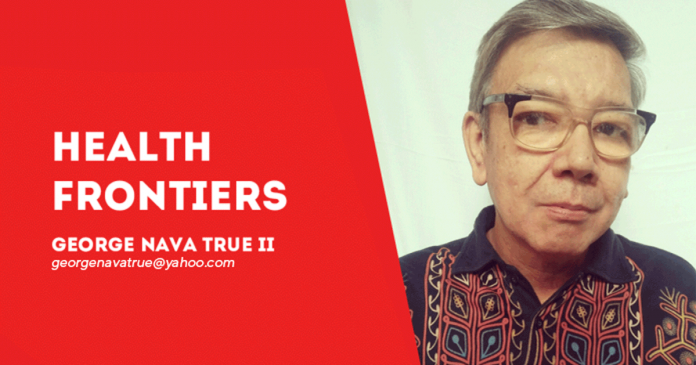
BY GEORGE NAVA TRUE
I have low blood pleasure (90/60). What medicine should I take? What foods do you recommend? – Name and address withheld on request.
Having low blood pressure (hypotension) might seem like a good idea in a world where a lot of people are suffering from hypertension, but it’s not. Hypotension can be just as bad.
When you have a blood pressure reading of lower than 90/60 millimeters of mercury (mm Hg), that’s low blood pressure. The top number is called systolic pressure and refers to the amount of pressure the heart produces when pumping blood through the arteries. The number below is diastolic pressure or the amount of pressure in your arteries when the heart rests.
For some, hypotension creates no problems and requires no treatment. It should concern you only if it causes symptoms. In others, a sudden drop in blood pressure can cause blurred vision, dizziness, fainting, nausea, and shock. Severe hypotension can be life-threatening and lead to confusion, a weak and rapid pulse, cold skin, and rapid and shallow breathing. The Mayo Clinic said this can damage the heart and brain.
Blood pressure normally changes throughout the day, depending on your position, physical condition, what you eat or drink, the medicines you take, and your stress level. It’s often lower at night and rises during the day.
Types of hypotension
Depending on the cause, there are many types of low blood pressure. The one that usually occurs in old people standing up from a sitting or lying position is called orthostatic or postural hypotension. This can be caused by burns, dehydration, diabetes, excessive heat, heart problems, pregnancy, prolonged bed rest, and varicose veins.
Medicines that cause orthostatic hypotension include drugs used to treat high blood pressure like angiotensin-converting enzyme (ACE) inhibitors, beta-blockers, calcium channel blockers, and diuretics. Antidepressants and medications for Parkinson’s disease and erectile dysfunction can also contribute to the problem.
Postprandial hypotension is low blood pressure that occurs one to two hours after eating. This usually affects older adults, people with high blood pressure, and Parkinson’s disease.
Faulty brain signals
Neurally mediated hypotension is low blood pressure from faulty brain signals. This causes blood pressure to drop after standing for a long time and often affects young adults and children.
Hypotension due to nervous system damage is called multiple system atrophy with orthostatic hypotension or Shy-Drager syndrome. This rare disorder has symptoms similar to Parkinson’s disease and is associated with high blood pressure while lying down.
Many other things cause hypotension. These include:
* Dehydration that is due to fever, vomiting, diarrhea, overuse of diuretics, and strenuous exercise
* Endocrine problems like parathyroid disease, adrenal insufficiency (Addison’s disease), low blood sugar (hypoglycemia) and, diabetes
* Heart conditions like a low heart rate (bradycardia), heart attack, and heart failure
* Lack of vitamin B -12, folate, and iron in your diet
* Loss of blood from a major injury or internal bleeding
* Pregnancy (this improves after childbirth)
* Severe infection (septicemia)
* Severe allergic reaction (anaphylaxis) triggered by foods, certain medicines, and insect bites
Medications that lead to hypotension
It’s also a good idea to check your medicines since some are responsible for hypotension. These include:
* Alpha-blockers like prazosin
* Beta-blockers, such as atenolol and propranolol
* Certain types of antidepressants (tricyclic antidepressants), including doxepin and imipramine
* Drugs for erectile dysfunction, including sildenafil or tadalafil, especially when taken with the heart medication nitroglycerin
* Drugs for Parkinson’s disease, such as pramipexole or those with levodopa
* Water pills (diuretics) like furosemide and hydrochlorothiazide
How is low blood pressure treated? Find out this Monday in my next column. Don’t miss it!
***
National Press Club and Philippine Dental Association awardee George N. True II has written two bestsellers based on his popular column that has been running for almost 40 years. For questions about health, email georgenavatrue@yahoo.com./PN

